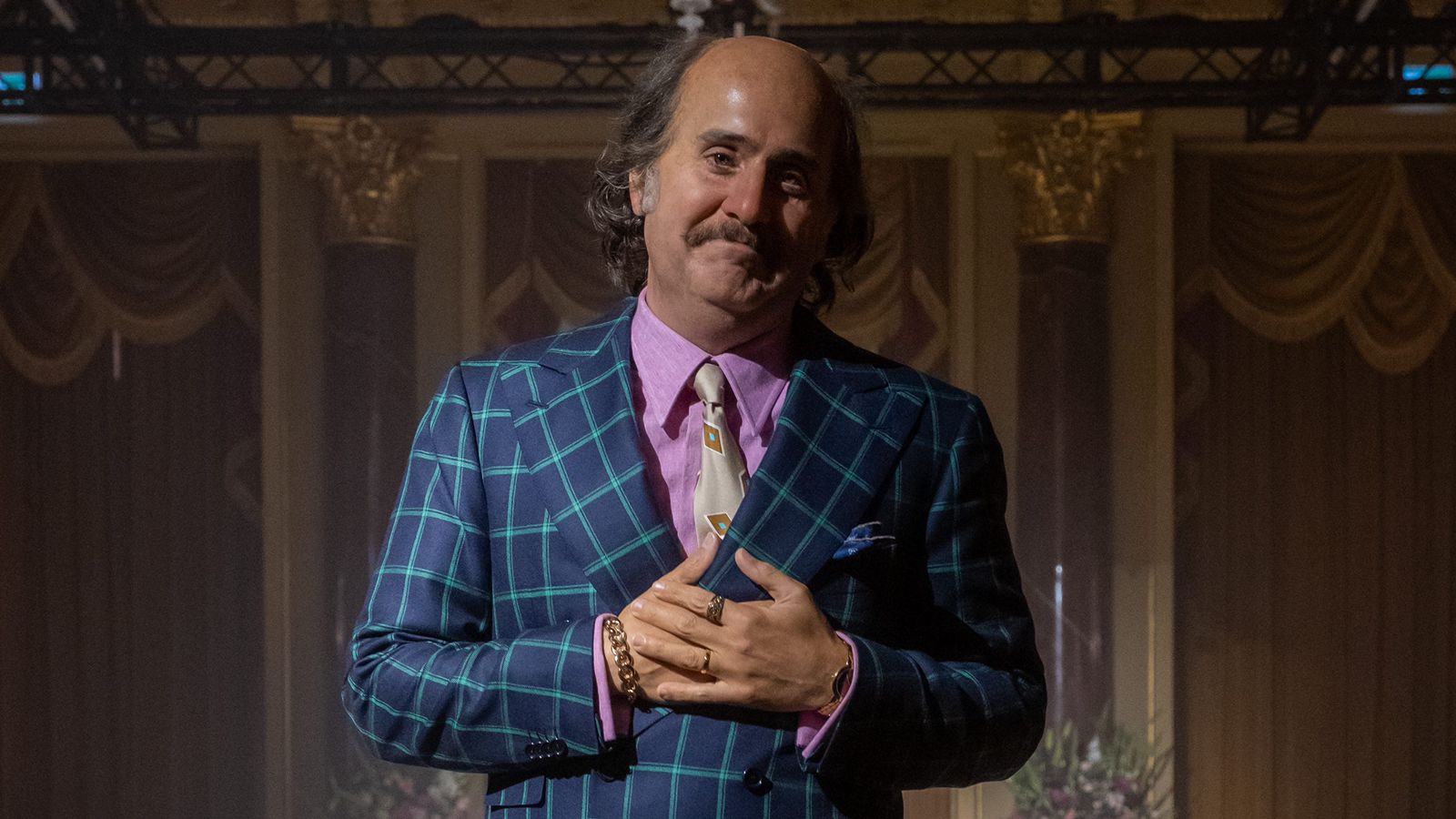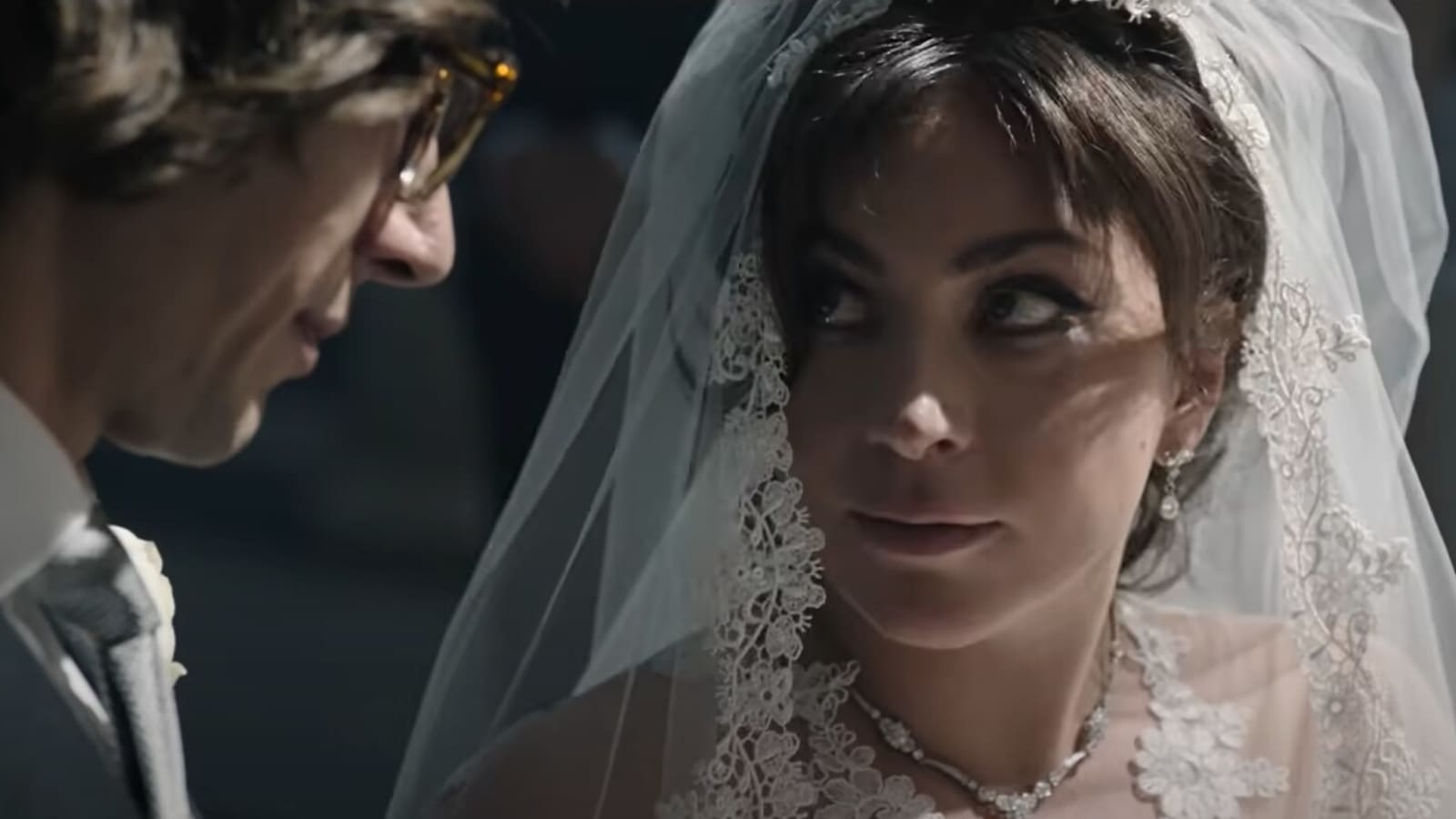House of Gucci movie review: Lady Gaga shines in this brilliant Italian soap opera on cocaine
The subtitle of the non-fiction book Ridley Scott’s new film House of Gucci is based on is ‘A Sensational Story of Murder, Madness, Glamour, and Greed’. Scott’s film delivers exactly that while maintaining an observational distance from the extravagant subject matter. I kept thinking what Martin Scorsese would do with this plot because it’s right up his alley. In the centre of an opulent enterprise is a ticking time bomb of a protagonist whose greed brings an empire down. A Scorsese adaptation of this book would probably spill over into the auditorium and burn the theatre to ashes.
Was that too dramatic? Of course. My head is still reeling from the 157-minute tour through House of Gucci. It’s like an Italian soap opera on cocaine. I really enjoyed Scott’s dispassionate and wry look at rich eccentrics stabbing each other in the back and losing control of their family business to private investors, the drama culminating in the murder of a Gucci scion in broad daylight.
Watch House of Gucci trailer:
Scott’s film begins in the 1970s, when the Italian fashion house Gucci is under the control of brothers Rodolfo (Jeremy Irons) and Aldo (Al Pacino). Rodolfo, haughty but level-headed, thinks the Guccis are royalty. The business-minded Aldo wants to send Gucci to shopping malls and make the brand’s products a mass-market item, an idea Rodolfo finds distasteful. Meanwhile, Aldo’s man-child son Paolo (Jared Leto) thinks he is a fashion designer. The entire family disagrees.
Naturally, Rodolfo’s son Maurizio (Adam Driver), who is trying to become a lawyer, wants to get the hell out of this zoo.
Enter showstopper Patrizia Reggiani (Lady Gaga). When she meets the impossibly polite Maurizio at a party, it’s love at first sight for the self-described “social person” and “people pleaser” Patrizia, whose father runs a transportation business. Rodolfo calls them “truck drivers”. He thinks Patrizia is a gold-digger. Maurizio, however, had been itching for long to escape his family’s shadow. To him, Paolo is a cautionary tale. While Patrizia sees in Maurizio a Really Nice Guy™, who just so happens to be a Gucci, Maurizio sees in Patrizia a way to not bear the burden of legacy and live as he pleases.
But will Patrizia let that happen? They get married, without the blessings of the Guccis, and then, a whirlpool of circumstances, provoked by Patrizia, pull Maurizio back into the family circus.

Soon, fathers and sons hate each other, cousins are enemies, and the Gucci brand is in a shambles as cheap knockoffs flood the market in the 1980s, while Giorgio Armani and Versace have raced ahead. The family eventually loses the business. Relations deteriorate and men are murdered.
Is Patrizia a villain? Or is she just a smart and capable woman who is only trying to do good by wrestling a multi-million-dollar business out of the hands of some incompetent men?
Becky Johnston and Roberto Bentivegna’s screenplay based on Sara Gay Forden’s 2001 book does not pick sides. Gaga, in an outstanding performance, shakes up every every room she walks in in House of Gucci. Her Patrizia is a feral, intense, uninhibited go-getter. Gaga is a riot right from the film’s earliest scenes. At the party where they meet for the first time, Patrizia has thrown herself at Maurizio, who is enjoying the attention, but he is a good boy who has to leave when it gets late. “The night is young, Cinderella,” she says. Maurizio says he will turn into a frog at midnight, and as he leaves, Patrizia says he is not the frog, he is the pumpkin.
More examples of crackerjack dialogue. “My bladder may be full, but my dreams are fuller, and I a rush of water,” a drunk Paolo waxes poetic about his fashion-designing talents. Pat comes Aldo’s reply: “Build a dam”. Later, when Maurizio and Patrizia inform a sick Rodolfo that they have just had a baby, a girl, Rodolfo is beside himself with emotion. Then he looks at Patrizia and says, “I’m glad it wasn’t a boy”.
Two decades of the Gucci family unfold with luxurious visuals at a brisk pace; the editing is by Claire Simpson, and the cinematography by Dariusz Wolski. Wall-to-wall 1980s pop and Italian opera music bring a music-video feel to the movie. The performances are stupendous. Gaga and Leto, both successful popstars, get the flashiest roles, and they hit the ball out of the park. Irons and Pacino are well-cast. Salma Hayek is top-notch as the television psychic Giuseppina, who is Patrizia’s BFF and partner-in crime.
It was especially fun to see Pacino, once again in expensive suits, presiding over an Italian family. The chemistry between Pacino’s Aldo and his son Paolo also reminded me of the Godfather. Aldo is dismissive of Paolo, just as Michael Corleone was of his brother Fredo, but at the end of the day, Aldo observes that Paolo may be an idiot, but he is “my idiot”.
Also read: When Lady Gaga said she would ‘absolutely not’ date Shah Rukh Khan for this reason
In the midst of these temperamental characters, Driver is perfectly ice-cold as Maurizio. In one scene, Maurizio observes he is just “Gucci by name. I don’t have their Tuscan character. It was diluted by my mother’s German blood”.
Who then had the most Tuscan character? House of Gucci suggests that it was Patrizia. She did appear to have the best interests of the Gucci brand in mind, albeit for personal gain. Without Patrizia, Maurizio certainly could not have come into his own, Gucci may have not been what it is today, and this movie wouldn’t have been made.
House of Gucci
Director: Ridley Scott
Cast: Lady Gaga, Adam Driver, Jared Leto, Al Pacino, Jeremy Irons, Salma Hayek
For all the latest entertainment News Click Here

